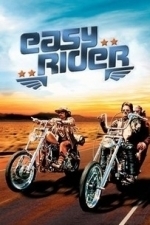Search
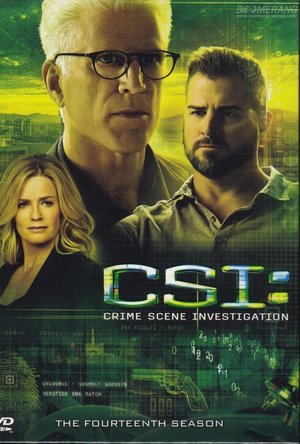
CSI: Crime Scene Investigation - Season 14
TV Season
D.B. and Finn lead the hunt for Morgan, while Brody makes a shocking discovery that endangers her...
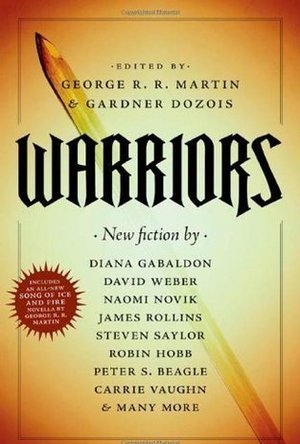
Warriors
Book
“People have been telling stories about warriors for as long as they have been telling stories....
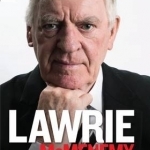
Lawrie McMenemy: A Lifetime's Obsession - My Autobiography
Book
Lawrie McMenemy is one of English football's giants: a legendary figure who came from nowhere to...
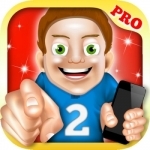
PRANK ME! 2 Trick Your Friends for iPhone & iPod touch
Catalogs and Productivity
App
*********************************** LAUNCH SPECIAL: $1.99 CENTS!! GET IT NOW BEFORE THE PRICE GOES...
Bob Mann (459 KP) rated Ocean’s 8 (2018) in Movies
Sep 29, 2021
Can 8 women do the work of 11, 12 or even 13 men?
The female empowerment #SheToo implications of the title are clearly writ large for this movie! The answer of course…. is a major spoiler, so we won’t go there.
Debbie Ocean (Sandra Bullock, “Gravity“), the previously unreferenced sister of arch-scoundrel Danny Ocean (George Clooney) from the reboot trilogy, is released from prison after a 5 year stretch. This has given her plenty of time to plan her next job – a jewellry heist from the New York Met – in intricate detail. She recruits biker-chick Lou (Cate Blanchett , “Carol“) as her partner and they then proceed to recruit a team of expert crimimals: well… some are not criminals, but soon will be! Will they succeed, or will Debbie have an even longer time to plan her next heist?
Stiff as planks…. Sandra Bullock and Cate Blanchett.
The movie unfortunately is rather like watching paint dry. It’s very glossy and expensive paint, I grant you, but compared to certainly Ocean’s 11 and even Ocean’s 13 it’s not in the premier league. There’s virtually nothing about the plot that leaves you surprised. Even the twists are merely “oh”s rather than “OH!’s”.
Stylistically the film attempts to model the Soderbergh split-screen visuals of his films, doing it quite well, and is accompanied by a similar jazz-style soundtrack which works effectively. Arguably, the well-chosen music by Daniel Pemberton (“King Arthur: Legend of the Sword“) is the best thing in the film.
When they said they were stealing from the Met…. perhaps I misunderstood?
Otherwise though, that’s where most of the similarities end, with there being limited character development to make you really care all that much whether the team win or lose. The script, by director Gary Ross (“The Hunger Games”) and Olivia Milch had a few clever lines that made me smile: but it’s not laugh-out-loud territory. So the story had better be good. Unfortunately, here Gary Ross’s story has so many implausible coincidences and incredulous leaps of intuition – “yeah, I’m from the hood innit but I have a grasp of magnetic resonance couplings learnt the hard way, from the street up!” – that belief is less suspended and more hung, drawn and quartered. This is not saying that the Ocean’s trilogy was without a few similar issues – reaching its nadir with Julia Roberts pretending to be Julia Roberts in “Ocean’s 12” – but this film is more consistently bonkers.
Hang on… I only count seven here?
I have to admit that the build up to the heist through the first half of the film left me sufficiently entertained, but that momentum suddenly fizzles out and the final reel becomes quite tedious. I also expected something to happen at the end, cameo-wise, that never did!
Acting wise, the best turn comes from Anne Hathaway (“Colossal“, “Les Miserables”) as a vainglorious actress but Helena Bonham Carter (“Suffragette“, “Harry Potter”) is also good value as the quirky fashion expert, coming across like some sort of ditzy Fatima Blush.
Good value – Anne Hathaway and Helena Bonham Carter.
I also liked Rihanna’s ‘Nine Ball’ character. Less successful for me was Bullock, who I felt came across as very wooden, and Blanchett, slightly less so. There are also some ‘B-list’ celebrities attending the Met-gala that are fun to watch out for, as well as two members of the earlier films’ cast.
After Diamonds but with nowhere to store an Umbrella: Rihanna knocks them dead on the red carpet.
So, it’s a disappointing effort from Gary Ross. All glitz and glamour but with little substance.
Debbie Ocean (Sandra Bullock, “Gravity“), the previously unreferenced sister of arch-scoundrel Danny Ocean (George Clooney) from the reboot trilogy, is released from prison after a 5 year stretch. This has given her plenty of time to plan her next job – a jewellry heist from the New York Met – in intricate detail. She recruits biker-chick Lou (Cate Blanchett , “Carol“) as her partner and they then proceed to recruit a team of expert crimimals: well… some are not criminals, but soon will be! Will they succeed, or will Debbie have an even longer time to plan her next heist?
Stiff as planks…. Sandra Bullock and Cate Blanchett.
The movie unfortunately is rather like watching paint dry. It’s very glossy and expensive paint, I grant you, but compared to certainly Ocean’s 11 and even Ocean’s 13 it’s not in the premier league. There’s virtually nothing about the plot that leaves you surprised. Even the twists are merely “oh”s rather than “OH!’s”.
Stylistically the film attempts to model the Soderbergh split-screen visuals of his films, doing it quite well, and is accompanied by a similar jazz-style soundtrack which works effectively. Arguably, the well-chosen music by Daniel Pemberton (“King Arthur: Legend of the Sword“) is the best thing in the film.
When they said they were stealing from the Met…. perhaps I misunderstood?
Otherwise though, that’s where most of the similarities end, with there being limited character development to make you really care all that much whether the team win or lose. The script, by director Gary Ross (“The Hunger Games”) and Olivia Milch had a few clever lines that made me smile: but it’s not laugh-out-loud territory. So the story had better be good. Unfortunately, here Gary Ross’s story has so many implausible coincidences and incredulous leaps of intuition – “yeah, I’m from the hood innit but I have a grasp of magnetic resonance couplings learnt the hard way, from the street up!” – that belief is less suspended and more hung, drawn and quartered. This is not saying that the Ocean’s trilogy was without a few similar issues – reaching its nadir with Julia Roberts pretending to be Julia Roberts in “Ocean’s 12” – but this film is more consistently bonkers.
Hang on… I only count seven here?
I have to admit that the build up to the heist through the first half of the film left me sufficiently entertained, but that momentum suddenly fizzles out and the final reel becomes quite tedious. I also expected something to happen at the end, cameo-wise, that never did!
Acting wise, the best turn comes from Anne Hathaway (“Colossal“, “Les Miserables”) as a vainglorious actress but Helena Bonham Carter (“Suffragette“, “Harry Potter”) is also good value as the quirky fashion expert, coming across like some sort of ditzy Fatima Blush.
Good value – Anne Hathaway and Helena Bonham Carter.
I also liked Rihanna’s ‘Nine Ball’ character. Less successful for me was Bullock, who I felt came across as very wooden, and Blanchett, slightly less so. There are also some ‘B-list’ celebrities attending the Met-gala that are fun to watch out for, as well as two members of the earlier films’ cast.
After Diamonds but with nowhere to store an Umbrella: Rihanna knocks them dead on the red carpet.
So, it’s a disappointing effort from Gary Ross. All glitz and glamour but with little substance.

